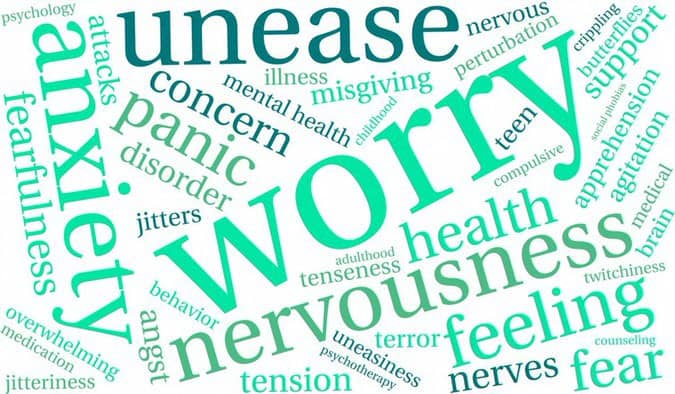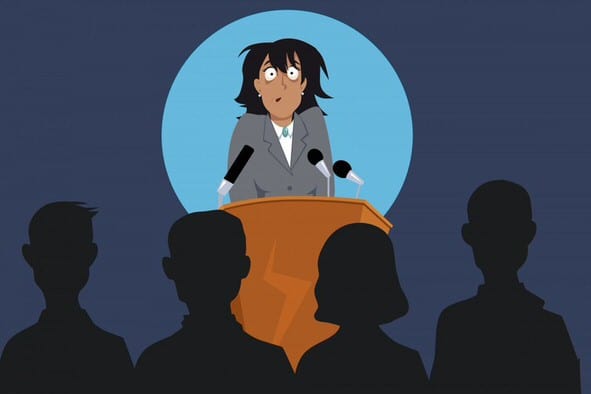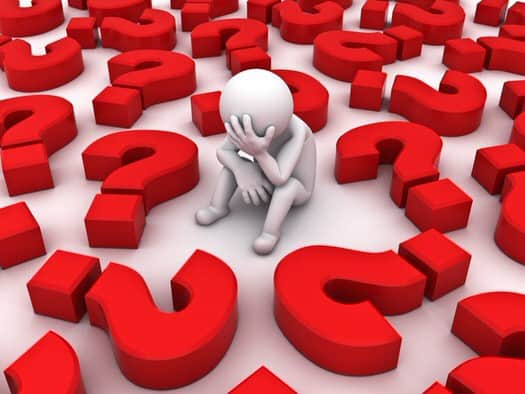What Causes Social Anxiety?
To find out what triggers social anxiety we will first look at social anxiety in general. Many people feel anxious when it comes to giving a speech, going to a job interview, or meeting new people.

However, social anxiety is an extreme fear of social situations that often result in dread or panic. In order not to feel this way, a person with social anxiety might avoid situations that could be embarrassing or humiliating. The person fears being judged by others.
Anyone with social anxiety knows that these thoughts or feelings are irrational, but the feelings of anxiety or discomfort are so high that they become unbearable.
This means that the person starts to limit social interactions such as going to parties, going out to public places with friends, and sometimes even going to work or school. As a result, social anxiety disrupts the quality of life for the person who suffers.
What Triggers Social Anxiety?
- Being socially awkward or feeling insecure
- Being bullied, neglected, or abused, and feeling powerless or helpless
- Being sensitive and easily upset by the actions of others
- Experiencing stressful life events, such as family conflict or the loss of a loved one.
Performances and Presentations
Performances, such as giving speeches, making presentations, or even playing a musical instrument in the presence of others. Robert Wyatt apparently suffered extreme social anxiety, with even a 
He shared with Helen Brown of The Telegraph that he felt some performance anxiety before performing at the London Olympics because ‘everybody was watching…the queen, the world…’ Fear of judgment or negative evaluation can leave people which social anxiety feeling panicked and nauseous.
Parties or meeting new people
Going to parties might bring a sense of joy and anticipation to many. For a person with social anxiety, parties often mean meeting new people, having to make small talk, eating and drinking in front of others, or taking part in games or activities which might make the person feel put into the spotlight.
Meeting new people can be difficult because there’s no real way of knowing how others will respond. The fear of being evaluated negatively can make it difficult to create small talk or to chat casually with new people. In situations where a person feels put on the spot or has to go around the room in icebreaker style, sharing with others, can be very intimidating.
When you are at a party, how do you feel? Do you like going to parties? Is it difficult for you to meet new people? Do you feel like you have to be drunk before you can have fun when meeting new people? If you answered “yes” to any of these questions, you are not alone. This fear of social situations is common, and many people feel the same way.
In general, parties are not the ideal place for people with social anxiety disorder. Parties are highly unpredictable and highly social events. This means that there are many opportunities to make mistakes. For example, you might say something that your friends will think is silly, embarrassing, or rude. If you have social anxiety, you will worry about this. You will worry about how you will recover from this mistake. You will worry that you will not recover from this mistake and that you will be humiliated. You will worry that no one will talk to you at the party. All of this worrying makes parties more difficult for people with social anxiety.
People in authority
People in authority such as teachers or management often seem to have knowledge that we don’t or insights that we don’t have. Sometimes, it’s easy to believe that people who are considered to be important feel completely confident and strong, and that they have ‘made it’ in the world. The thought of people like this giving an evaluation and finding a person lacking can feel very frightening.
From the perspective of social anxiety, a person in authority could give a negative evaluation, and holds the authority to do so. This would feel extremely humiliating or upsetting, and a person with social anxiety is afraid of not being able to manage the feelings that would come with this.
Applying for a new job
Going to job interviews is very intimidating. It means meeting new people, and to make it worse, it is the purpose of the interviewer to evaluate a candidate. A person might not get the job, and if there are a great many candidates, there is stiff competition, and it is possible that the person will face rejection.
In an interview, a person has to state an opinion, and it is possible that the interviewer might not agree with them. Not every candidate will be the best fit for a job, but a person with social anxiety fears it is personal shortcomings that will be assessed.
Eating in public
Socializing often involves eating or drinking with others, but a person with social anxiety often finds this very uncomfortable, and this leads to turning down invitations to get together. Some people feel scared in all situations where eating and drinking occurs in public spaces. This can include canteens or cafeterias.
Other people might feel uncomfortable in specific situations, such as in crowded coffee spots, or only during formal occasions. Some people feel afraid of eating only in certain company, such as with those in authority, or with people they don’t know well. Anxiety is sometimes increased when foods are difficult to eat. Messy foods, or foods that might cause stains may also provoke social anxiety.
This situation is made even more difficult because anxiety means that a person’s hands can shake, or bring about a feeling of nausea. This could lead to a person being more likely to spill food, choke on food, or feel uncomfortable with the process of eating.
Combined triggers and social anxiety
Although social anxiety has set triggers, these triggers can often combine to make a situation incredibly complex. Consider, for example, a socially anxious person who is going to be going to a party to introduce new members of a university course to each other. The person will be in a situation with new and unfamiliar faces.
The professor or person who holds authority will be there, despite in an informal way. The person might be put into the spotlight by having to introduce him/herself and to share information about what has motivated a college choice or course selection process. The students then take part in an Italian supper, where food is messy and may easily spill. This situation brings together multiple triggers for a person with a social anxiety disorder and would feel absolutely dreadful. The decision to withdraw, or not attend, might, however, limit the opportunity to make new friends.
Not all people with a social anxiety disorder are triggered in every social situation, however. It is possible that a person can find some situations challenging, but find it easier to manage others.
Understanding specific triggers help to provide acceptable alternatives to social interactions – a person might not go to a party, for example, but might be happy to go for coffee at a quiet venue.
However, even if a situation is unavoidable, such as a job interview or evaluation performance, it is possible to focus on thoughts or techniques which will enable the person to feel more comfortable. Understanding that a job might not be a good fit, but that there will be others, or that it is possible to find another quiet person to speak to at a party, help socially anxious people to cope better with challenges and triggers. This understanding of what triggers social anxiety is often crucial to improving quality of life.
